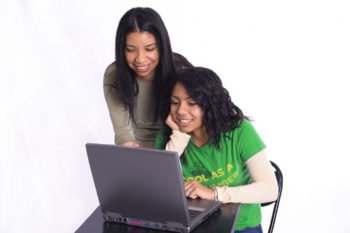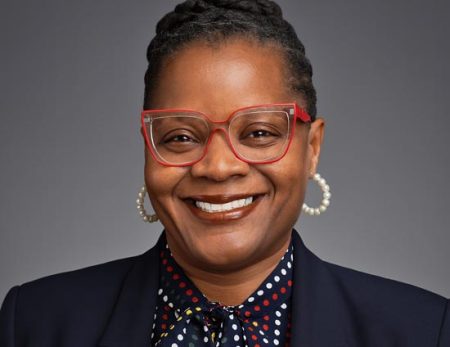Working Toward Digital Equity
By Sylvia Landis –

Digital Inclusion Week, May 7-11, 2018
The digital revolution has impacted every area of life, and all communities are grappling with the changes.
One hurdle they face is the double-edged sword of digital inclusion and digital equity. If those terms are unfamiliar, it is helpful to remember the City of Asheville’s vision statement for “a fair and balanced society where everyone can participate and has the opportunity to fulfill their potential.”
Without access to the internet, and without devices that are accessible and affordable, some members of the community will be left out. Digital inclusion posits that we are all part of the digital revolution: to succeed, everyone needs the ability to get online and have the right devices for access. Currently, Asheville does not have a formal plan to achieve across-the-board digital inclusion, but many organizations are working to create better access for citizens and more opportunities for both job and entrepreneurial success.
In addition, the National Digital Inclusion Alliance (NDIA), representing more than 300 affiliated organizations in 38 states that work toward digital equity, is sponsoring an online, nationwide Digital Inclusion Week May 7-11. The organization recently held its annual convention in Cleveland, Ohio, and included the first National Digital Inclusion Program Survey, available online at www.connectedinsights.org. (Those interested in digital equity can join the mailing list.)
The convention included many sessions of interest to individuals and organizations in Asheville, such as the challenges of funding broadband as well as digital redlining. And for every challenge, examples of innovation abounded. One funding proposal, from the Federal Reserve Bank of Dallas, works with local or regional banks using Community Reinvestment Act funding to expand and upgrade broadband capability throughout an area. Other presentations offered innovative ideas for providing both broadband and connective devices to underserved communities.
Some communities are developing unique programs that meet the needs of rural areas, specific demographic groups (even the Girl Scouts and 4-H have technology programs), populations who may be non-native English speakers, may have just arrived in the community, or have long-standing cultural differences that need to be honored and preserved.
One of the most innovative presentations was Libraries without Borders, which provides library and technology services in laundromats. Another described a conference recently held at Arizona State University at which was created The Tempe Declaration, which extends access to information through offline internet. There’s also a new program on virtual reality: a free training program for libraries.
Further resources discussing the sessions at the convention, found at @growingwork, include a link to the Digital Inclusion Coalition Guidebook and a reference manual to assist communities in providing and paying for broadband coverage to every sector of the community. That resource has been developed by the Federal Reserve Bank of Dallas and is titled “Closing the Digital Divide.”
Charlotte, NC, will host Net Inclusion 2019. A podcast interview with the chair of Digital Charlotte will be posted on @growingwork.
More information is available at www.digitalinclusion.org/diw/; events will be listed with the hashtag #digitalinclusion; local events can be created by following instructions on the site. Another hashtag in use will be #DIW2018.
Sylvia Landis is a retired career counselor living in the Asheville area who writes online about North Carolina travel @nctravelshow. She can be contacted via email at [email protected].








